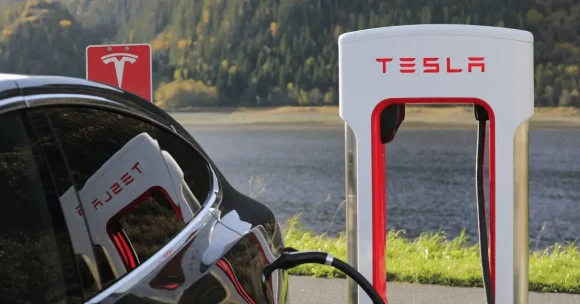Tesla received the green light from Shanghai’s Nanhui New City district to trial the company’s Full Self-Driving (FSD) program on 10 vehicles.
As reported by Car News China, the director of the data department of the Shanghai Free Trade Zone Administrative Committee confirmed the news, but he didn’t specify when testing will begin.
Tesla FSD in China
Tesla will need to register its FSD software with the Ministry of Industry and Information Technology (MIIT) first, since it has to approve every vehicle model sold in China. The EV manufacturer already built a data center in Shanghai in 2021.
All information collected from Tesla’s systems is stored and processed at this data center. This includes the company’s Autopilot software, as well as sales data, production data, and the like.
Any data transfer to the United States was strictly prohibited. These restrictions were put in place in 2021 to prevent the potential of spying. The restrictions were removed in 2024 after Tesla passed China’s stringent security requirements.
Back in April, Xpeng Motors chairman and CEO said he welcomes Tesla’s FSD to the Chinese market since the “next decade will be the decade of smart cars.” He said Tesla’s experiences combined with China’s own progress “will speed up the landing of driverless cars by three years.”
Also in April, Tesla CEO Elon Musk cryptically said on X that FSD in China “may be possible very soon.” The following month, Musk visited Chinese Premier Li Qiang to discuss Tesla’s robo-taxi rollout, which is planned for August 8, 2024.
Musk’s visit coincided with the Beijing Motor Show, and the trip fueled speculation that Tesla’s FSD would be implemented in China sooner than expected. The service costs $99 a month in the US.
Tesla’s ‘super factory’ in China
In related news, a reporter for Shanghai Observer learned that Tesla’s energy storage business will be expanding after the company signed a contract with the Lingang Group. The deal involves the construction of a ‘super factory’ in the Lingang New Area (district).
The new factory will have a production scale of nearly 40 GWh (gigawatt-hours), which represents a significant capacity for manufacturing energy storage products, such as Tesla’s Megapack batteries.
Tesla’s collaboration with the Lingang Group could promote the widespread adoption of Tesla’s storage solutions in the Chinese market.
ALSO READ: Can EU tariffs on Chinese EVs threaten sustainability?
About the author
Cheryl has contributed to various international publications, with a fervor for data and technology. She explores the intersection of emerging tech trends with logistics, focusing on how digital innovations are reshaping industries on a global scale. When she's not dissecting the latest developments in AI-driven innovation and digital solutions, Cheryl can be found gaming, kickboxing, or navigating the novel niches of consumer gadgetry.











